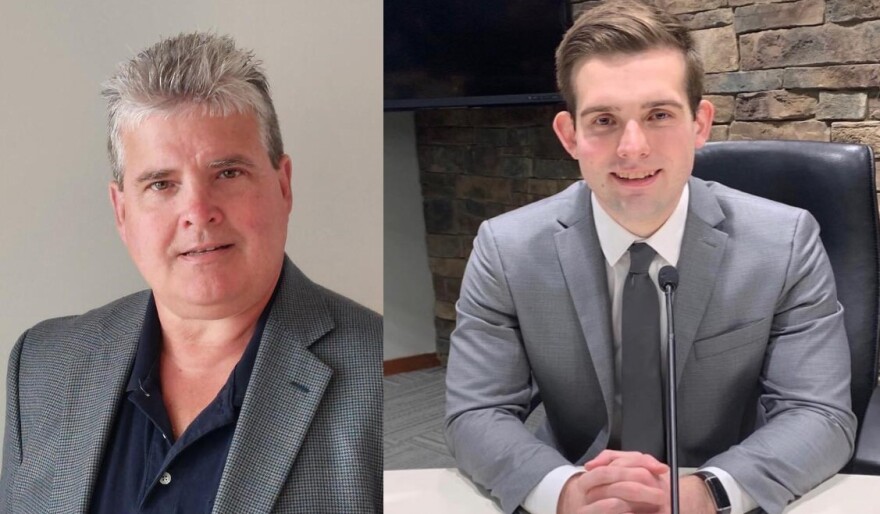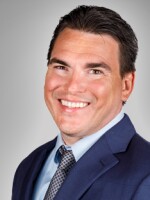ALLENTOWN, Pa. — This year, the state House of Representatives 22nd District looks a little different from how it did in the past.
Thanks to a round of redistricting, the district has new boundaries. It will represent a different population and need a new representative as the would-be incumbent, Democrat Peter Schweyer, is running in a different district.
Because of where he lives, Schweyer now is running to represent the 134th District.
Voters in the newly redistricted 22nd District will have two candidates vying for the empty seat: Democratic Josh Siegel and Republican Robert Smith.
Siegel is an Allentown City Council member.
Smith has previously served as a member of the Allentown School Board.
- The state House of Representatives 22nd District is an empty seat following redistricting that changed the district's borders
- Democratic candidate Josh Siegel is an Allentown City Council member
- Republican candidate Robert Smith has previously served as a member of the Allentown School Board
The new boundaries of the 22nd District cover areas to the south and east of its old coverage area. The district still covers parts of Allentown, but now it reaches east and includes parts of Fountain Hill.
Redistricting was done with the intent to provide more opportunities for minority candidates. But after a challenge to his nominating petitions, Noberto Dominguez, the only minority candidate for the district, dropped out early in the race.
Republican Robert Smith
The 60-year-old Smith was on the Allentown School Board for 16 years. He was previously a city councilman in Allentown.
He was among petitioners who challenged the use of Lehigh County’s election drop boxes in the recent case brought forward by America First Legal, a conservative group founded by Mark Meadows and Stephen Miller, officials for former president Donald Trump.
The petition was denied and the county will use drop boxes as planned.
Democrat Josh Siegel
At just 28, Siegel has been an active member of the Allentown City Council for three years. He also serves Lehigh County Controller Mark Pinsley as his chief of staff.
On council, Siegel was a vocal supporter of the Lehigh Valley IronPigs in the team’s push for funds from the city’s pot of American Rescue Plan Act funds – a proposal that was recently denied.
On the issues
LehighValleyNews.com reached out to the candidates recently to discuss their campaigns in the remaining days before the election.
Siegel said he has been spending time meeting voters face to face and "making sure [they] continue to work hard straight on through election day."
Smith said he's been going door-to-door working on getting voters to cross the aisle for him. He said, on paper, his opponent seems to have an early lead.
"It's going to have to be a perfect storm, because of the numbers," said Smith.
Campaign focus
Siegel said one of the biggest issues facing voters is more than inflation; it is corporate greed. He called it an "affordability crisis" and said he has talked with voters about how the government could step in and address it.
"Fifty percent of all the inflation that people are paying is a direct result of corporate profit," Siegel said. "And it's about talking about how the government is not part of the problem, but rather the solution to making sure that working people can afford to live."
He also called for legislation that would address the rising costs of everyday life.
"The responsibility of government is to have your back," Siegel said.
For Smith, he said he's pushing to be a candidate that can focus on bipartisanship. He says, throughout his campaign he has hoped to avoid mudslinging.
"I may have to work with all these people to get money in our district," said Smith. "I've said stuff against Josh, but not anyone else."
Smith's campaign site notes that he wants to reform property tax, fight for "strong borders where illegal drugs are coming in very easily now" and calls for fewer regulations on small businesses.
At a recent debate, both candidates met to break down their stances on several issues.
On abortion
Smith said he believes the current laws concerning abortion are correct, and as a Christian, he wouldn’t legislate his beliefs on another individual.
He even promised to support the right to choose.
“That’s a scout's honor promise,” Smith said at the debate.
Siegel, on the other hand, has been endorsed by Planned Parenthood and Vote Pro-Choice.
Siegel has promised that if elected, he would fight “tooth-and-nail” to ensure a woman’s right to choose.
On crime and gun violence
Smith has said his campaign is focused on crime prevention — even suggesting there be some task force established to combat gang-related violence in the school system.
On gun control initiatives, Smith said at the debate that he is against banning guns but said teens should not have AR-15s.
At that same debate, Siegel also said he would not ban guns such as pistols or shotguns, but he does support gun buybacks and banning assault weapons.
Siegel called assault weapons such as the AR-15 “machines of war.”
On marijuana legalization
Both candidates support the legalization of marijuana.
Siegel told voters that if recreational use is legalized, the state could possibly generate $1 billion in new revenue, which he suggested could be used to support the public school system.
Smith said he will support the legalization of marijuana in Pennsylvania if it is done slowly. He also does not want marijuana use in public, as he did not want to have to explain the smell to his grandchildren.
On PA's minimum wage
As with marijuana legalization, Smith will only support raising the minimum wage if it is done gradually.
Pennsylvania has not seen a minimum wage increase in 15 years. It is currently set at the federal minimum of $7.25 an hour. At the recent debate, Smith said raising the minimum wage would hurt small businesses.
Instead, he suggested tying a minimum wage increase to legislators' salaries, so these rates could increase together.
Siegel argued that a minimum wage increase is long overdue.
In fact, at the debate, Siegel countered that a minimum wage increase would help local small businesses but not hurt them.
As an example, Siegel said that if the minimum wage were increased to $15 an hour, it would put more than $5 billion a year back into the local economy — money that could then be spent at local shops and restaurants and used to create jobs in the region.
Both men will be on the ballot on Nov. 8.


